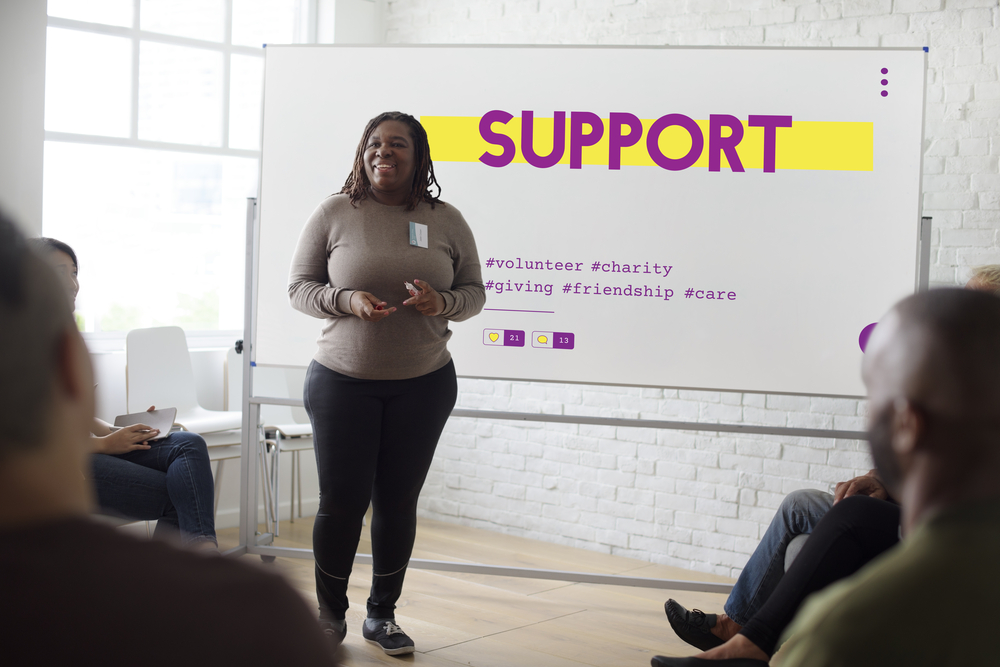Every student deserves a school where they can thrive, grow, and feel supported. In Ontario, like in many places, high school education plays a key role in helping students build their futures. But not all students have the same opportunities, and some face challenges that make it harder for them to succeed. This is especially true for marginalized students, including Black students.
Schools are beginning to realize that they don’t have all the resources or time to address social justice issues on their own. Often, outside organizations like Harmony Movement, Stolen from Africa, and Get Real are called in to help train teachers or address these issues after an incident has already occurred. However, partnerships can—and should—be proactive. Instead of waiting for something to go wrong, schools need to build these partnerships ahead of time to equip teachers with the knowledge and skills they need to respond compassionately to injustices and create safe environments for all students.
This is the vision of More Than Just a School, the non-profit arm of Roots to Routes Academy. Together, they show how proactive partnerships can help high schools address social justice issues before they happen, ensuring a safer, more inclusive educational environment for all students.

The Challenges Facing Ontario’s High School Education System
Ontario’s high school system is one of the largest in Canada, but it still has many challenges. While many students do well, others—especially those from marginalized communities—face problems that can hold them back.
Some of the biggest challenges include:
-
Lack of Representation: Many students don’t see their culture, identity, or experiences reflected in the lessons they are taught. This can make it harder for them to connect with what they’re learning.
-
Unequal Resources: Some schools have more funding and resources than others. Schools in wealthier areas may have better books, more technology, and more extracurricular programs than schools in lower-income areas.
-
Mental Health Support: High school students need strong support systems, but some schools don’t have enough counselors or programs to help students with stress, anxiety, or other mental health challenges.
-
Social Injustices: Unfortunately, many students experience discrimination or prejudice on different grounds.
Rather than addressing these issues after a crisis, schools need to be proactive in creating inclusive, supportive environments. This is where proactive partnerships come in.
The Role of Proactive Partnerships in Addressing Social Justice Issues
Proactive partnerships are essential for creating high schools that are prepared to address social justice issues before they escalate. Schools, on their own, often don’t have the specialized resources or training needed to tackle complex social justice challenges. By partnering with community organizations, businesses, and government bodies, schools can access the expertise they need to create a safer, more inclusive environment for students.
Training Teachers to Address Injustices
Organizations like Harmony Movement and Get Real are stepping in to help schools train teachers on how to deal with issues surrounding discrimination. These organizations offer workshops, training sessions, and resources that equip educators with the knowledge and tools they need to respond to injustices in a compassionate and effective way.
Rather than calling in these organizations after something has gone wrong, schools can form proactive partnerships by having a plan in place from the start. This way, teachers are already trained and prepared to handle social justice issues, helping to prevent incidents before they happen.
Creating a More Inclusive Curriculum
Many organizations also help schools develop a more inclusive curriculum that reflects the diversity of students’ backgrounds. For example, More Than Just A School works with schools to bring African and Caribbean history and culture into the classroom, helping students of African descent feel more connected to their education. Similarly, we provide resources on how to integrate discussions of equity and inclusion into the daily curriculum.
By proactively partnering with these organizations, schools can ensure that their curriculum is inclusive and represents all students. This not only helps marginalized students feel seen and valued but also promotes understanding and empathy among all students.

How Proactive Partnerships Have Fueled the Success of Roots to Routes Academy
At Roots to Routes Academy, proactive partnerships have been key to its success. The academy was created to meet the unique needs of Black students in Ontario, offering them a space where they can feel safe, celebrated, and understood. Roots to Routes Academy didn’t wait for problems to arise before seeking help—instead, they proactively formed partnerships with organizations that help support students in every aspect of their lives.
Case Study: Partnership with YAAACE and Its Impact
One of the most important partnerships that Roots to Routes Academy has formed is with YAAACE (Young Achievers Academics & Athletics Academy). YAAACE is a community-based organization that focuses on providing academic, athletic, and social support to underserved youth, especially Black students.
Together, Roots to Routes Academy and YAAACE work to give Black high school students the support they need to succeed in and out of the classroom. This partnership provides a wide range of opportunities for students, including:
- Tutoring and Mentorship: Roots to Routes Academy offers tutoring programs that help students improve in subjects like math, French, and English. While YAAACE provides mentorship programs where students are paired with positive role models who guide them through the challenges of high school.
- Athletic Programs: YAAACE runs athletic programs that help students stay physically active while also learning valuable life skills like teamwork, discipline, and leadership. This ensures that students at Roots to Routes Academy are learning essential life skills within and outside of the classroom.
- Academic Enrichment: Through special workshops, leadership programs, and skill-building activities, the partnership ensures that students are prepared not just to graduate from high school, but to succeed in college, university, and life beyond.
This partnership has already made a huge difference in the lives of Black high school students in Ontario. It has helped students feel more confident, motivated, and ready to take on new challenges. By working together, Roots to Routes Academy and YAAACE are helping create a brighter future for Ontario’s Black students, and by extension, improving high school education across the region.
More Than Just a School’s Role
More Than Just a School is the non-profit that helps keep Roots to Routes Academy running. It works to build partnerships with businesses, government, and the community to ensure that the academy has the resources it needs to thrive. Without these partnerships, Roots to Routes Academy wouldn’t be able to provide students with such a rich, supportive learning environment.
If you’re not already familiar with More Than Just a School and its work, you’re missing out on being part of an incredible movement that’s changing lives!
Expanding Proactive Partnership Models for Ontario’s Educational Ecosystem
Proactive partnerships like those at Roots to Routes Academy show how powerful collaboration can be. But there is still more work to be done to expand this model across Ontario and ensure that all students benefit.
When schools, businesses, and community groups work together proactively, they create lasting changes. These partnerships help provide students with the resources and support they need before problems arise. This leads to better student outcomes, including higher graduation rates, more students attending college, and greater success in the workforce.
Call to Action for Stakeholders
- Schools and Educators: Schools should actively seek out partnerships with local businesses and community organizations. By doing so, they can offer their students more resources, from mentorship programs to hands-on learning opportunities.
- Businesses and Corporations: Companies should see the value in investing in education. By partnering with schools, they help create a better workforce for the future while also giving back to the community.
- Government and Policymakers: Government leaders must continue to support policies that encourage partnerships between schools and other sectors. This ensures that every student, no matter where they live, has access to a high-quality education.
Conclusion: The Power of Partnerships for Transformational Education
Proactive partnerships are the key to making high school education in Ontario better for all students, especially those who face the greatest challenges. When schools, governments, businesses, and communities work together before problems arise, they create a stronger, more supportive system that helps students succeed.
More Than Just a School and Roots to Routes Academy, along with partners like YAAACE, Harmony Movement, and Stolen from Africa, are living proof of how powerful proactive partnerships can be. By bringing together educators, communities, and organizations, they are helping Black students in Ontario feel valued, supported, and prepared for the future.
Now is the time to get involved. Whether you’re a teacher, a business owner, or a community leader, there’s a place for you in this movement. Don’t wait for something to go wrong—let’s work together to build a brighter future for all of Ontario’s high school students, starting today.
Contact Us Now!